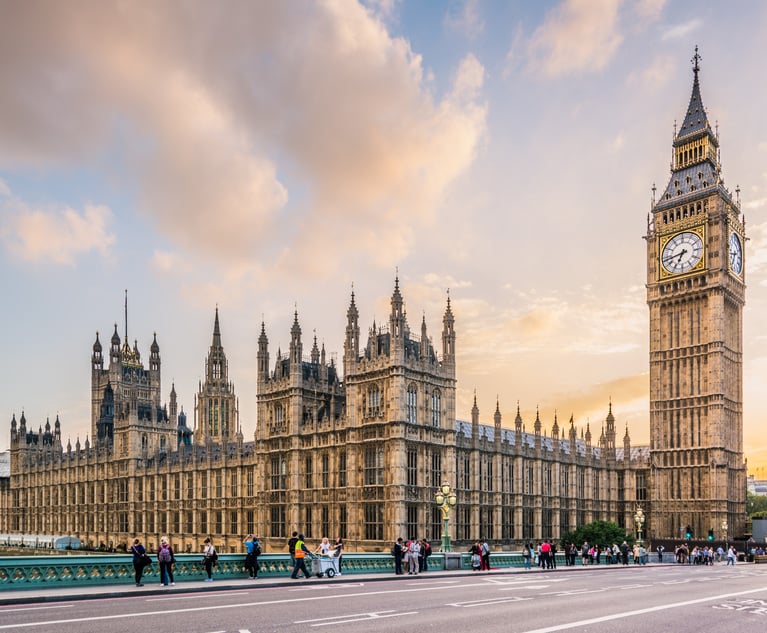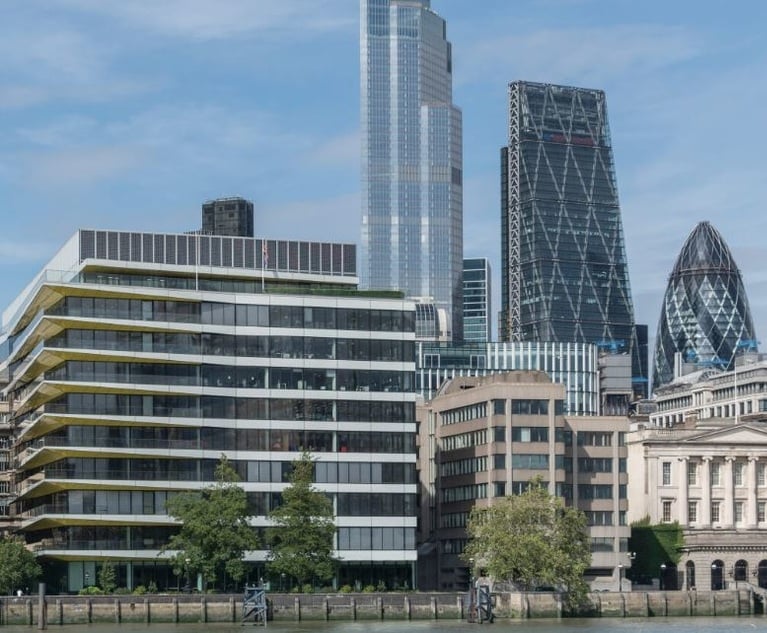McAlpine settles with BBC over Newsnight claims as ex-Tory pursues social media users
The scandal over a BBC report featuring allegations of child abuse by a former Conservative politician has placed renewed scrutiny on the legal implications of comments posted on social media sites such as Twitter. Following the Newsnight broadcast earlier this month, former Conservative Party treasurer Lord McAlpine rapidly became the subject of a number of allegations on social media sites, despite the fact he was not named by the programme.
November 15, 2012 at 07:03 PM
3 minute read
The BBC has settled with Lord McAlpine over a libel claim concerning allegations of child abuse made on the Newsnight programme which implicated the former Conservative politician.
The damages amount to £185,000 plus costs. The agreement will be announced in open court in a matter of days.
Lord McAlpine commented: "I have been conscious that any settlement will be paid by the licence fee payers, and have taken that into account in reaching agreement with the BBC.
"We will now be continuing to seek settlements from other organisations that have published defamatory remarks and individuals who have used Twitter to defame me."
Following the Newsnight broadcast earlier this month, the former Conservative Party treasurer Lord McAlpine rapidly became the subject of a number of allegations on social media sites, despite the fact he was not named by the programme. McAlpine subsequently described the allegations as "seriously defamatory".
The scandal has placed renewed scrutiny on the legal implications of comments posted on social media sites such as Twitter, with McAlpine's solicitor, RMPI's Andrew Reid, urging Twitter users who named his client to come forward and apologise.
Reid, who is representing McAlpine alongside former solicitor general Sir Edward Garner QC, has said that online and mainstream users have been identified and will be pursued for damages.
The episode marks the latest incident to highlight the role of social media users as legally liable publishers.
Addleshaw Goddard head of media litigation David Engel commented: "Some Twitter users appear to think that they are above the law, but the internet is not a law-free zone. Legally, there is very little difference between publishing on social media and in newspapers or on TV.
"From a libel law perspective, it does not matter if the subject is not actually named, if he is readily identifiable from the information that is provided about him. It is a classic case of jigsaw identification that has left the BBC in a tricky position."
The scandal has also turned attention to the BBC's in-house legal team, raising questions over the process by which programmes are approved by the broadcaster.
Berwin Leighton Paisner litigation partner Graham Shear said: "There is little doubt that a BBC lawyer would have reviewed the programme and 'greenlit' the broadcast. It has been suggested that there may have been a failure either in that assessment or in the information provided to be assessed.
"But I would not be surprised if the lawyer or lawyers in question faced pressure to give the go-ahead. They would have faced a difficult task with limited information or corroborating material to revert to."
For more, see The BBC, Lord McAlpine and libel law.
This content has been archived. It is available through our partners, LexisNexis® and Bloomberg Law.
To view this content, please continue to their sites.
Not a Lexis Subscriber?
Subscribe Now
Not a Bloomberg Law Subscriber?
Subscribe Now
NOT FOR REPRINT
© 2025 ALM Global, LLC, All Rights Reserved. Request academic re-use from www.copyright.com. All other uses, submit a request to [email protected]. For more information visit Asset & Logo Licensing.
You Might Like
View All
Former Miral GC Brings Commercial Insight to BCLP’s Middle East Real Estate Practice
4 minute read
‘A Slave Drivers' Contract’: Evri Legal Director Grilled by MPs

Serco Drops Three Firms Including Clifford Chance from Legal Panel
Trending Stories
- 1South Florida Attorney Charged With Aggravated Battery After Incident in Prime Rib Line
- 2'A Death Sentence for TikTok'?: Litigators and Experts Weigh Impact of Potential Ban on Creators and Data Privacy
- 3Bribery Case Against Former Lt. Gov. Brian Benjamin Is Dropped
- 4‘Extremely Disturbing’: AI Firms Face Class Action by ‘Taskers’ Exposed to Traumatic Content
- 5State Appeals Court Revives BraunHagey Lawsuit Alleging $4.2M Unlawful Wire to China
Who Got The Work
J. Brugh Lower of Gibbons has entered an appearance for industrial equipment supplier Devco Corporation in a pending trademark infringement lawsuit. The suit, accusing the defendant of selling knock-off Graco products, was filed Dec. 18 in New Jersey District Court by Rivkin Radler on behalf of Graco Inc. and Graco Minnesota. The case, assigned to U.S. District Judge Zahid N. Quraishi, is 3:24-cv-11294, Graco Inc. et al v. Devco Corporation.
Who Got The Work
Rebecca Maller-Stein and Kent A. Yalowitz of Arnold & Porter Kaye Scholer have entered their appearances for Hanaco Venture Capital and its executives, Lior Prosor and David Frankel, in a pending securities lawsuit. The action, filed on Dec. 24 in New York Southern District Court by Zell, Aron & Co. on behalf of Goldeneye Advisors, accuses the defendants of negligently and fraudulently managing the plaintiff's $1 million investment. The case, assigned to U.S. District Judge Vernon S. Broderick, is 1:24-cv-09918, Goldeneye Advisors, LLC v. Hanaco Venture Capital, Ltd. et al.
Who Got The Work
Attorneys from A&O Shearman has stepped in as defense counsel for Toronto-Dominion Bank and other defendants in a pending securities class action. The suit, filed Dec. 11 in New York Southern District Court by Bleichmar Fonti & Auld, accuses the defendants of concealing the bank's 'pervasive' deficiencies in regards to its compliance with the Bank Secrecy Act and the quality of its anti-money laundering controls. The case, assigned to U.S. District Judge Arun Subramanian, is 1:24-cv-09445, Gonzalez v. The Toronto-Dominion Bank et al.
Who Got The Work
Crown Castle International, a Pennsylvania company providing shared communications infrastructure, has turned to Luke D. Wolf of Gordon Rees Scully Mansukhani to fend off a pending breach-of-contract lawsuit. The court action, filed Nov. 25 in Michigan Eastern District Court by Hooper Hathaway PC on behalf of The Town Residences LLC, accuses Crown Castle of failing to transfer approximately $30,000 in utility payments from T-Mobile in breach of a roof-top lease and assignment agreement. The case, assigned to U.S. District Judge Susan K. Declercq, is 2:24-cv-13131, The Town Residences LLC v. T-Mobile US, Inc. et al.
Who Got The Work
Wilfred P. Coronato and Daniel M. Schwartz of McCarter & English have stepped in as defense counsel to Electrolux Home Products Inc. in a pending product liability lawsuit. The court action, filed Nov. 26 in New York Eastern District Court by Poulos Lopiccolo PC and Nagel Rice LLP on behalf of David Stern, alleges that the defendant's refrigerators’ drawers and shelving repeatedly break and fall apart within months after purchase. The case, assigned to U.S. District Judge Joan M. Azrack, is 2:24-cv-08204, Stern v. Electrolux Home Products, Inc.
Featured Firms
Law Offices of Gary Martin Hays & Associates, P.C.
(470) 294-1674
Law Offices of Mark E. Salomone
(857) 444-6468
Smith & Hassler
(713) 739-1250









